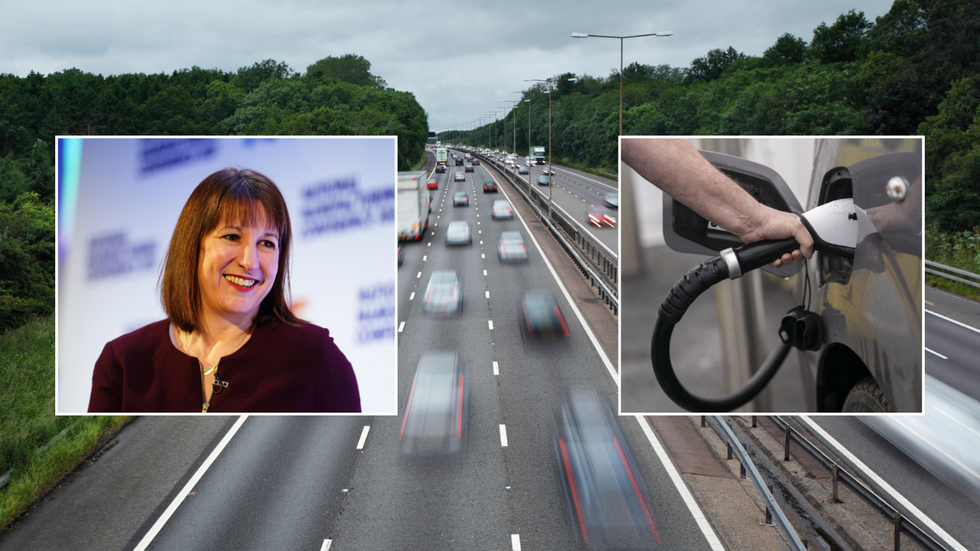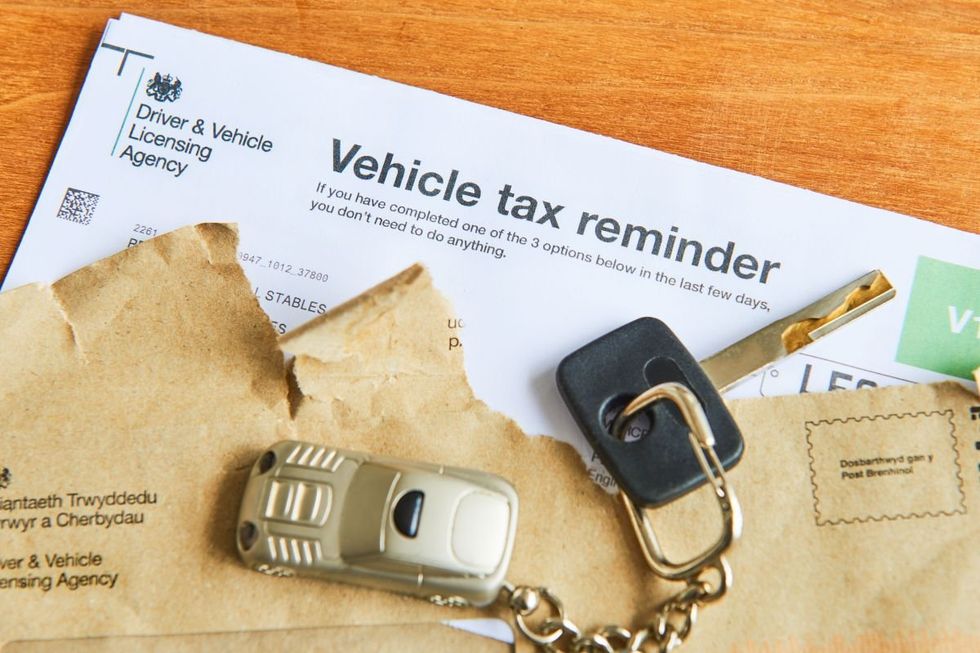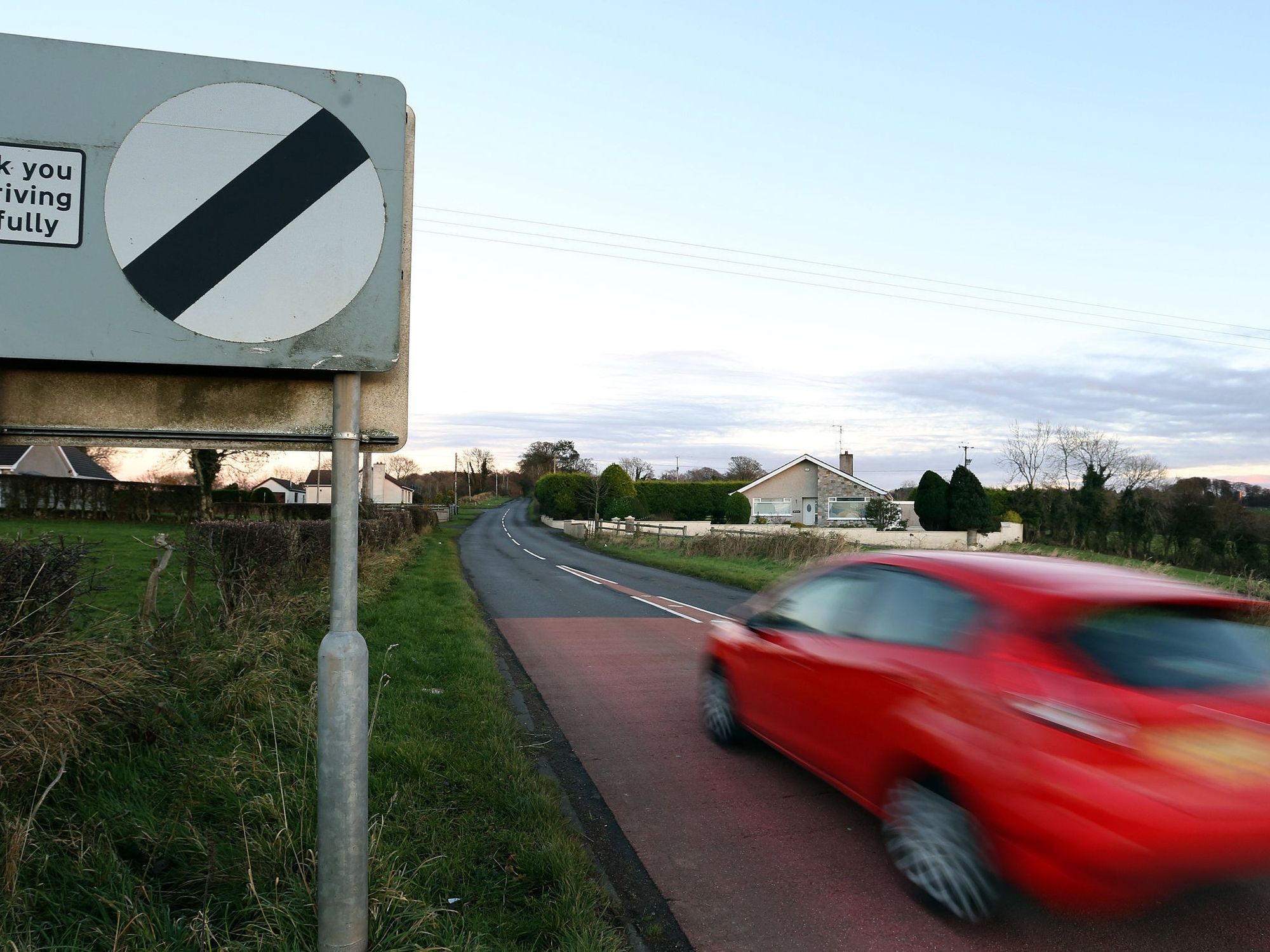Rachel Reeves could push drivers back to petrol and diesel cars as pay-per-mile taxes make EVs unaffordable

WATCGH: Bev Turner rages at Rachel Reeves amid plans to introduce pay-per-mile car taxes
|GB NEWS

Two in five drivers would back away from electric cars if new taxes were introduced
Don't Miss
Most Read
Nearly half of UK motorists have warned that a proposed pay-per-mile car tax could reverse the financial benefits of switching to electric vehicles, potentially driving consumers back to petrol and diesel cars.
Research revealed that 46 per cent of respondents fear the proposed 3p per mile charge would make electric vehicles more expensive to run than fossil fuel counterparts.
The findings emerge as the Government considers introducing the new taxation system today at the Autumn Budget, raising questions about the future affordability of zero emission cars.
The survey results highlighted growing uncertainty among consumers about the true cost of electric vehicle ownership, particularly as ministers seek to balance environmental goals with Treasury revenue needs.
Chancellor Rachel Reeves is reportedly set to unveil new taxes for electric vehicles today to help plug the falling revenue from fuel duty receipts.
If new taxes go ahead, the study found that only 11 per cent of those surveyed believe electric vehicles will maintain their cost advantage over conventional petrol and diesel cars.
The proposed taxation system has sparked debate about whether it could undermine efforts to accelerate the transition to electric motoring across the UK.
With approximately 1.4 million fully electric vehicles currently on UK roads, the potential policy shift comes at a critical juncture for the automotive sector.

The Chancellor is expected to announce new car taxes for electric vehicles at the Autumn Budget today
| PA/GETTYThe findings suggest widespread scepticism about whether electric vehicles can remain financially competitive under the proposed new framework, despite Government ambitions to phase out petrol and diesel sales.
The research uncovered additional anxieties about electric vehicle ownership during winter months, with 53 per cent of respondents expressing little confidence in understanding how cold weather impacts charging expenses.
Just one in 10 drivers felt assured about winter charging costs, while only four per cent expressed strong confidence in the charging infrastructure's ability to handle seasonal demand.
The survey also found that three in five harbour doubts about whether the UK's public charging network could cope with increased winter usage.
LATEST DEVELOPMENTS
- Drivers face £100 fine for dangerous driving manoeuvre which blocks roads and 'damages' cars
- Rachel Reeves 'highly likely' to axe fuel duty freeze in Budget as petrol and diesel drivers face misery
- Polestar unveils revolutionary EV charger breakthrough that can save drivers £1,000 a year - 'Game changer!'
These concerns compound existing worries about electric vehicle practicality, as 37 per cent of drivers admitted fears about depleting their battery charge during colder months.
Ali Ingram-Seal, product manager at Saga Car Insurance, acknowledged that "range anxiety is one of the biggest barriers for drivers considering an EV, but it's getting easier every day to stay charged and on the road".
She highlighted that the UK now has more than 86,000 public charging points, making it "possible to plan longer journeys with confidence".
She added that home charging points enable drivers to maintain batteries at the recommended 80 per cent level, while regular top-ups at public chargers can "help reduce strain on the battery and maintain range consistency throughout winter".
 Experts have criticised the potential plans for drivers to face pay-per-mile car taxes | GETTY
Experts have criticised the potential plans for drivers to face pay-per-mile car taxes | GETTYJohn Wilmot, founder and CEO of LeaseLoco.com, warned that one of the major benefits of driving an electric vehicle was that it was "far cheaper to run than a petrol or diesel car".
He stated that a pay-per-mile tax risks eliminating that advantage, which could make drivers think twice about switching any time soon.
Mr Wilmot shared: "We want people to switch to electric cars, but they're dealing with limited charging infrastructure and other rising costs, which can leave them questioning whether it's even worth it."










